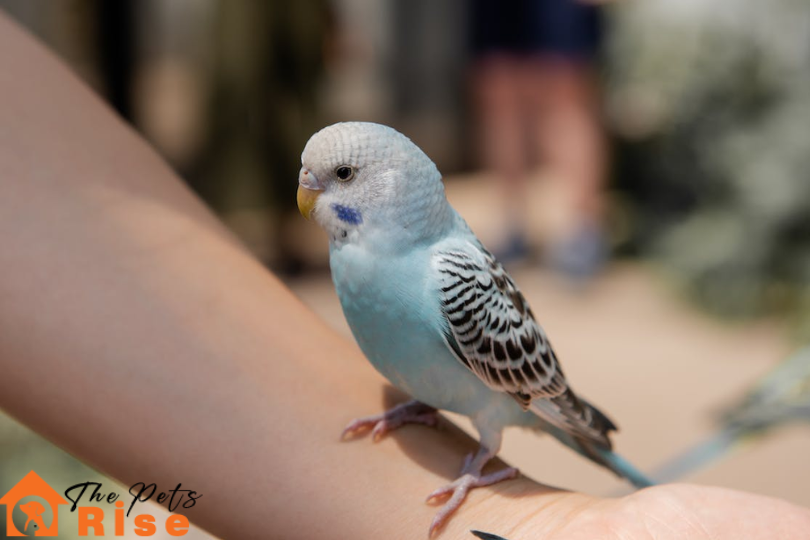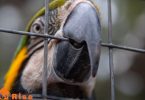Bird injuries are one of the most concerning things among pet bird owners. The major problem with injured birds is that they are quite a challenge for pet owners as they have little to no idea about how to treat injuries such as a bird with an injured wing and alike. Birds are undoubtedly one of the cutest creatures to be kept as pets. They are 4th most preferred choice as pets in America.
As a caring pet bird owner, you will need to make sure your birds will never get injured at any cost because even if they are injured, they can hide their injuries and will not react. There are several things to keep in mind when it comes to avoiding injuries in birds. Continue reading below for more information.
Why You Should be Concerned About Bird Injuries?
Birds can disguise disease for longer and you may not even get a hint about this. If they displayed symptoms of sickness or ailment in the wild, they would become an easy target which is why they will just sit there without reacting much. Birds still hide their disease inside our homes because of this instinct.
Weighing the bird once a month is among the simplest ways to keep an eye on its well-being. The bird is likely unwell if he is losing weight without being on a diet. Or maybe your bird with an injured wing isnt moving much as it used to but you didn’t understand it. Below are some of the most typical ailments and injuries, along with home treatment recommendations that can buy time until the bird can see a doctor.
Types And Symptoms Of Bird Injuries
Any unusual behavior could be a sign of a wound. Common indications include
- Wobbling
- Almost No Movement (Especially The Wings)
- Continuous Flapping Of Wings
- Feather Removal
- More Than Normal Pecking
- Avoiding Food (Anorexic)
- Drinking No Water
- Increasing Your Water Intake
- Not Going Potty
- Greater Than Normal Urination
- A Variation In Poop Frequency
- A Modification In The Color And Appearance Of The Excrement
- Tremors \ Depression
If you have doubt about the injury and looking for little wing first aid then make sure that you have checked the lack of movement in the bird as well. It is a serious sign of a problem, as you can find bleeding from different parts of the body.
A bird that is curled in a cage corner, displaying indications of fatigue, not reacting to calls as it used to, laying at the bottom of the cage, or having trouble breathing is also likely injured.
Injuries Due to Dog or Cat Attack
This is perhaps one of the most common injury types reported by a huge number of pet wonders. This is quite common in a household where birds are living with other types of pets such as dogs or cats. If you happen to witness an injury in your bird because of a cat or dog attack then here is how to treat a bird attacked by a cat or dog.
To prevent contributing to the bird’s distress, handle him gently and calmly. Keep the bird warm and silent. This will be helpful in treating the shock symptoms. Apply direct pressure with a piece of gauze if the injury is bleeding, but don’t let it lose consciousness. Take the bird right away to your veterinarian.
While checking for the bird in shock, take a look at its bones as well. There shouldn’t be any damage to its bones. Tie the wing loosely to the body with the gauze if you found the wind is broken. Don’t tie the tape too tight as it may cause breathing problems. Do not try to treat yourself at home if additional bones, such as the legs or the cranium, are shattered.
If you don’t have any idea regarding how to treat a bird attacked by a cat or bird injuries caused by animal attacks then veterinarian visits are crucial. One should visit it as soon as possible for a thorough examination to see if there are any minor or major wounds. There is a huge amount of bacteria that can cause serious infections if left untreated among birds.
Treatment for Injuries with Bleeding
Injuries with bleeding can be a serious problem and this can result even fatal. This is why you should learn how to save a bird from dying as well. Bleeding, caused by any type of injury from nail clipping to another animal attack shouldn’t ever be overlooked.
If your bird is bleeding, firmly but gently squeeze the area where the blood is coming from and consult a veterinarian right away. If a bird is having trouble breathing, the veterinarian will give it extra oxygen. Large wounds due to accidents or injuries should be treated professionally and with care, this can put birds in shock or get an infection. This is because stress and anxiety are more damaging than physical harm.
If your bird exhibits any strange behavior, take it to a veterinarian right away because timely medical care can save your bird’s life from bird injuries.
Toenail Bleeding
If the bird injuries are because of the trimming of the toenail and grooming of birds then usually putting a styptic powder or a stick on the injured toenail usually works. The bleeding will usually stop in a shorter while. You should take the bird to the vet if the bleeding isnt stopping.
Tongue Bleeding
Though not so common but can be a serious bird injury. Tongues contain different types of small veins that can cause bleeding upon getting injured. Before it put the bird in shock, take your bird to the veterinarian immediately.
Chilling
If your bird is exposed to severe cold and now you believe that it won’t make it then make sure you know how to save a bird from dying. Start by creating a cozy atmosphere by heating the area with a heat lamp or hot water bottle that has been covered in a towel.
Be very careful not to burn the bird. Maintain an ambient temperature of 85–90°F. To prevent overheating, keep an eye on the air temp. Find out what is causing the chills. If nothing works then seek veterinarian care if it going to put a bird in shock. Fix the issue or relocate the bird if it’s because of environmental factors like a power outage or a drought.
Poisoning
If you found that your pet bird has inhaled some fumes then you should take the bird to a well-ventilated place if the toxin was breathed, such as vapors from a Teflon pan, and call your veterinarian without any delay.
You should also contact the vet if it has contacted some outside sprays directly such as any cleaner or insect killer sprays. This can be a fatal problem if your bird is even having difficulty in breathing. The thing is the treatment for such an issue isnt as simple as little wing first aid. So contacting a professional vet is crucial.
Tell the vet about the toxin it has inhaled or consumed. He or she can deal with the poisoning with caution. If you want to know how to save a bird from dying while it contracted poison then it is crucial to know the substance it has contracted with. They will also want to know about the amount of toxin, the birds weight, and height, and any common symptoms the bird is showing.
Bottom Line
Preventing future bird injuries is always the first step after an illness or accident. To decide what kind of additional care is required, speak with your veterinarian or the emergency room. Have a first aid kit on hand for your bird so that you are ready for situations. Make sure to follow this bird care guide and follow our blog for more pet care guides.







